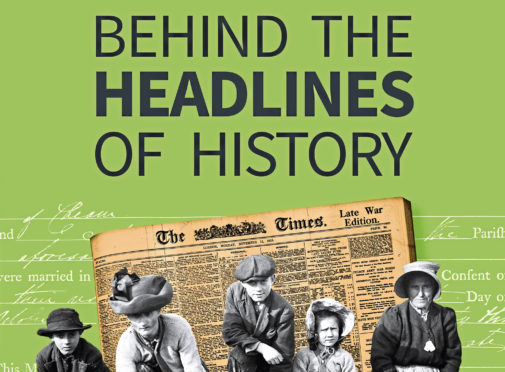
Behind The Headlines Of History (Apple Podcasts)
Sometimes an idea comes along and you wonder why someone hasn’t done it earlier.
There’s been a huge interest in genealogy over the past couple of decades as people try to uncover their dim and distant family history.
But the methods used by these companies to uncover the lives of ordinary people from times of yore can be used for so much more.
An ingenious new podcast from a newspaper archive company and ancestry.com combines old headlines with genealogy to have a look at some historic incidents in a new light.
Behind the Headlines of History, hosted by Brad Argent and genealogist Michala Hulme from Manchester Metropolitan University, explores intriguing newspaper stories from the past, using records on ancestry to uncover more about the lives of some of those involved.
The first series of the weekly show launched earlier this month, so there are a few episodes available, revealing the love story behind The Great Bullion Robbery of 1855 and a journey from stolen hazelnuts in 1877 to Downton Abbey.
In the last episode Brad and Michala each share a story stemming from the tragic year of 1862 – from a boiler explosion in Leicestershire to the Hartley Colliery disaster.
Brad and Michala give a glimpse of the real people behind these headlines.
It’s a bit like if Who Do You Think You Are? was merged with an episode of What The Papers Say.
DeepMind (Google Podcasts)
Artificial intelligence is no longer confined to the world of science fiction.
This is a new series by the company that owns DeepMind, the artificial intelligence being developed as we speak.
They will explain how AI can be used, and how they keep it safe ie stop it launching apocalyptic robot uprisings, and so on.
Passenger List (Stitcher)
We do love a good mystery.
A new fictional podcast starts off with a report of a child wandering around an airport unattended, and quickly becomes a thriller about a plane that vanishes between London and New York.
A student whose twin brother was on board searches for the truth amid phone calls and plot twists. Good, silly fun. Expect a movie version in a couple of years.

Enjoy the convenience of having The Sunday Post delivered as a digital ePaper straight to your smartphone, tablet or computer.
Subscribe for only £5.49 a month and enjoy all the benefits of the printed paper as a digital replica.
Subscribe